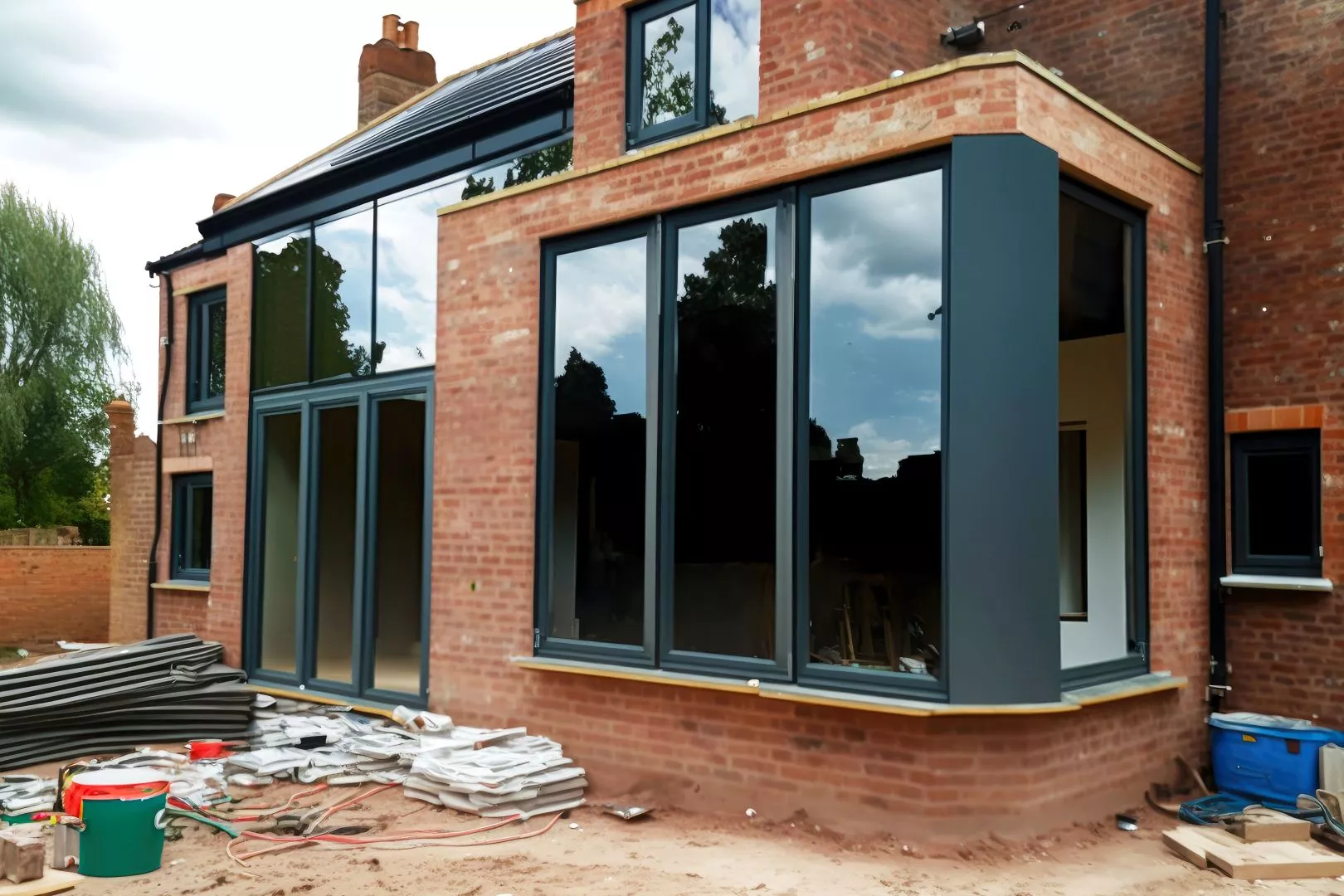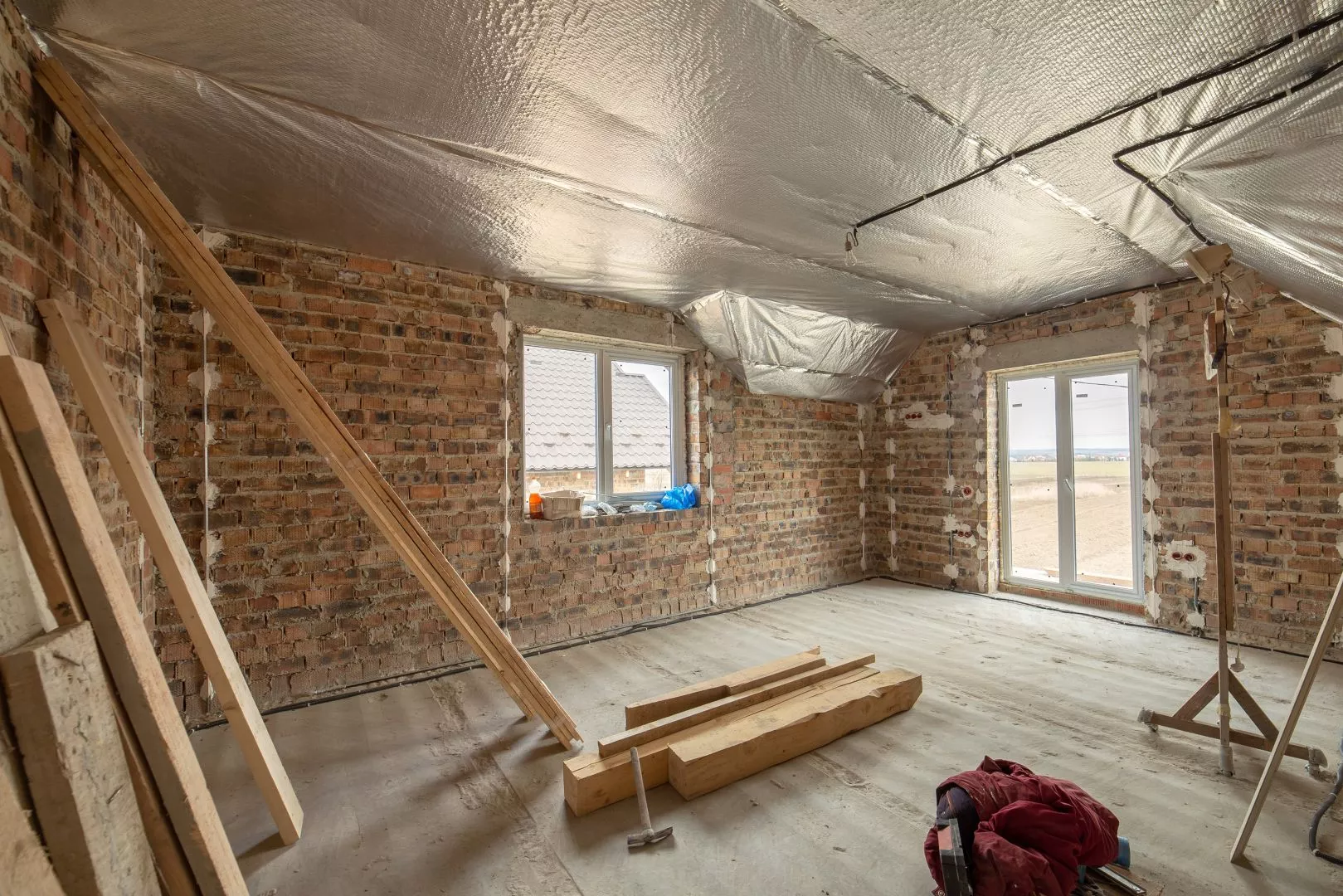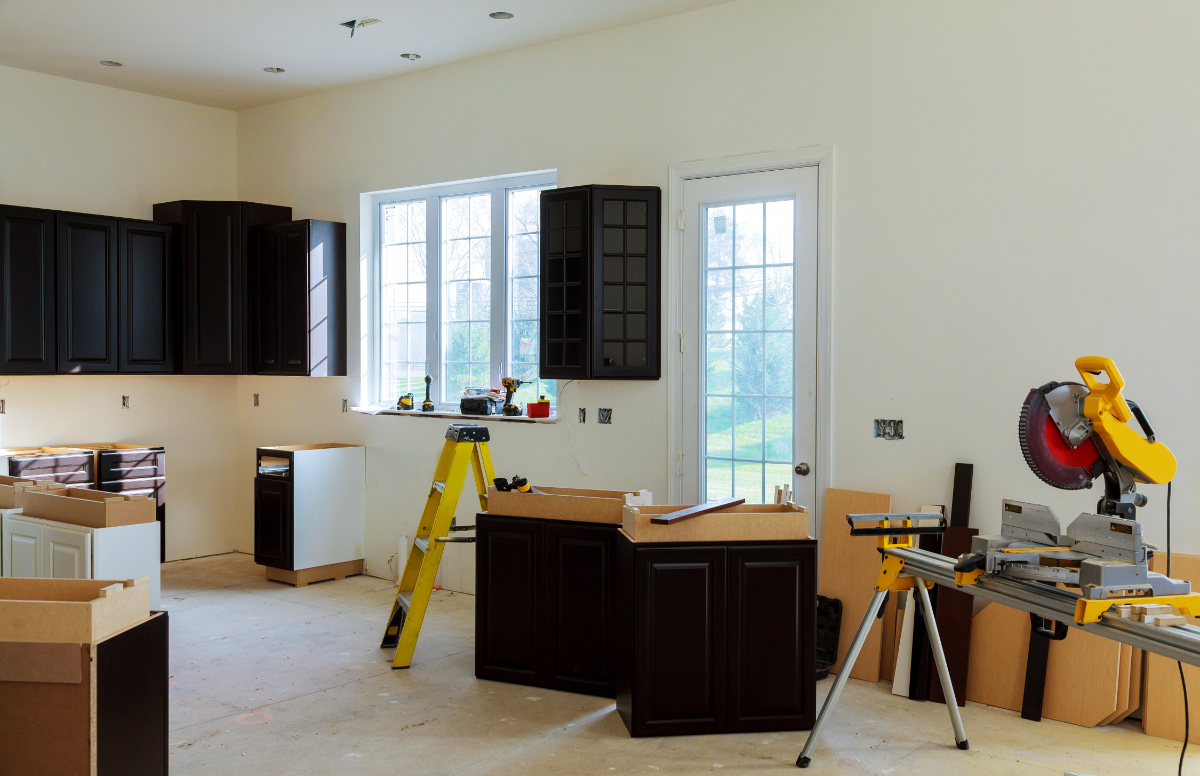We look at what to consider before starting home renovation. Explore key considerations before starting your project, from budgeting and timeline planning to design inspiration and contractor selection.
How Can You Estimate The Project Timeline?
A common question that arises when thinking about home renovation is, how long will it take? The usual answer to this query is, it truly depends on the specifics of the project.
The duration can be influenced by several factors including the extent of the renovation, the season in which the work is being done, and encountering any unanticipated complications with your property.
Starting a renovation needs clear goals. You must first establish what you want to achieve. Are you merely planning a modest refresh on your kitchen cabinets, or are you envisioning a complete kitchen makeover? The number of rooms you plan to renovate simultaneously is another critical factor. Small renovations could span just a few weeks, whereas extensive remodels may stretch out for over a year.
Secondly, it's prudent to ask your contracted professionals for their estimations. These experts can offer a more precise timeframe, keeping their past experiences and imminent workload in mind
However, unforeseen issues detected during the renovation like structural defects or damp problems can escalate the duration of the project. Lastly, always remember to factor in a buffer period.
It's a good practice to not pin down a rigid timeline for your renovation project. More often than not, these renovation tasks outlast the initial estimated time because hitches and delays are part and parcel of any renovation.
How Can You Estimate The Renovation Cost?
Accurately calculating your remodelling budget is a pivotal aspect of any renovation project as expenses can quickly accumulate if not monitored closely. To get your budgeting right, you need to initially itemise your “must-haves” and "nice-to-haves".
Creating a prioritised list based on these two categories will allow you to make informed decisions in case expenditure exceeds your preliminary estimate.
This way, if you’re faced with unanticipated costs, you can choose to omit some "nice-to-haves" and ensure your “must-haves” are incorporated. Once you have defined the extent of your renovation project and your list is ready, it's your cue to investigate about the potential expenses.
If you're hiring a contractor for the job, they should be able to provide a comprehensive and itemised quote. This typically includes the labour expenses along with the cost of the materials required.

The advantage of this is that you are given an intimate understanding of where your money is going, aiding in better cost control. Alternatively, those who prefer to roll up their sleeves and take on a do-it-yourself approach, need to evaluate the cost of materials they require. Additionally, they should also account for expenses that would be incurred in renting any equipment required to carry out the renovation tasks.
Yet, whether you choose to employ a contractor or undertake the renovation yourself, it's crucial to remember one aspect: unexpected expenses. Despite careful planning and meticulous budgeting, unforeseen complications can arise, disrupting your original budget. This could be anything, from unexpected structural issues that need rectifying to strict building regulation requirements that must be adhered to.
To safeguard your project from unexpected monetary havoc, it's recommended to earmark at least 15-20% of your total budget for such occurrences. This financial cushion is a smart way to keep your project running smoothly even if you bump into unforeseen issues. Ultimately, careful financial planning can go a long way in ensuring that your renovation project is successful and within your cost expectations.
Are Renovations A Good Return On Investment?
Many homeowners starting on a renovation project commonly ask - what sort of return can I expect on my investment? Indeed, it's something to consider, as most renovations will heighten a property's worth.
Nonetheless, the potential return on investment (ROI) would depend on a few factors. These include the renovation quality, the housing market condition and the specific refurbishments undertaken.
Kitchen and bathroom renovations typically provide an excellent ROI. These are areas in the house that are frequently used, so improvements in these places usually lead to significant value upticks.
Similarly, additions such as incorporating an extra bathroom or bedroom could potentially contribute to an increase in the property value. Additionally, energy efficiency enhancements can also be worthwhile.
They may not immediately augment the property's market value, but these improvements are likely to reduce future utility expenses, thereby leading to long-term financial savings.
While renovations can undoubtedly improve your property value and living conditions, it's important to note that it's not always straightforward. Therefore, it's best to seek proper guidance from property professionals and valuation experts before embarking on a sizeable renovation project. They can provide sound advice and helpful input that can ensure that your renovation decisions will indeed give you a favourable return on your investment.
Do You Or The Contractor Need Insurance
Having insurance during any home renovation project is incredibly important. It is a safeguard that protects both you and your contractor should there be any mishaps such as accidents or damages.
This could range from a minor incident like a broken window to a major catastrophe like a fire. The right insurance coverage helps ensure you are not left with unexpectedly high costs if anything untoward happens during your renovation work.
One common myth among homeowners is that their existing home insurance policy will cover any incident related to the renovation.
However, this is typically not the case. Standard home insurance policies may not offer coverage for incidents specifically related to the renovation project. Hence, relying solely on your usual home insurance could leave you at a greater financial risk.

In light of this, before beginning any renovation work, it may be necessary for you to update your existing policy. You could add extensions that cover the specific risks associated with renovations. Alternatively, acquiring a renovation-specific insurance policy could provide more comprehensive coverage.
Any renovation work can introduce new hazards, thus a policy tailored for renovations can provide the best protection. Likewise, it is essential to ensure your chosen contractor also has an active liability insurance policy. This type of insurance will cover any potential personal injury to the workers involved in your project or damage to your property during the renovation process.
For example, if a worker accidentally damages a neighbour's property, liability insurance will cover the associated cost. Because having a valid insurance policy is a significant component of responsible contracting, it's prudent for homeowners to request proof of this insurance before the contractor begins work on their property. This evidence can be peace of mind for you during the often hectic and potentially risky renovation process.
Overall, insurance during property renovation is a vital part of the planning process. By ensuring that both you and your contractor have ample coverage, you can focus on the exciting parts of your renovation knowing that you are protected should things not go as planned.
What Equipment Will Be Around Your Property?
Engaging in a home renovation often involves your property temporarily transforming into a construction site. This change may seem daunting initially. The tranquillity of your home will be occasionally disrupted by the presence and usage of a variety of construction equipment and materials. This could potentially include items such as ladders, scaffolding, cement mixers, power tools and piles of timber or bricks.
Your home may also house a large dumpster or skip for waste disposal during this period. It's crucial that you familiarise yourself with the details of the renovation project, know how to navigate around the site safely, and understand exactly what to expect before the renovation starts. Discuss with your contractor the types of equipment they plan to leave on your property and query how it could affect your everyday living conditions during the renovation period.
Also, consider asking about how areas will be cordoned off and whether there will be any access restrictions to certain parts of your property. Should this be the case, this must be planned for in advance to avoid inconvenience. Remember that while this may seem like an enormous task, with careful planning and clear communication with the company, your renovation project can run smoothly and successfully. After all, the ultimate goal is to improve your home and boost its value.
Are you planning a home renovation in Coventry, Nuneaton, West Midlands? If you are planning a home renovation, you will want to discover if it is viable to do so. Ask our local expert today for a quotation.


